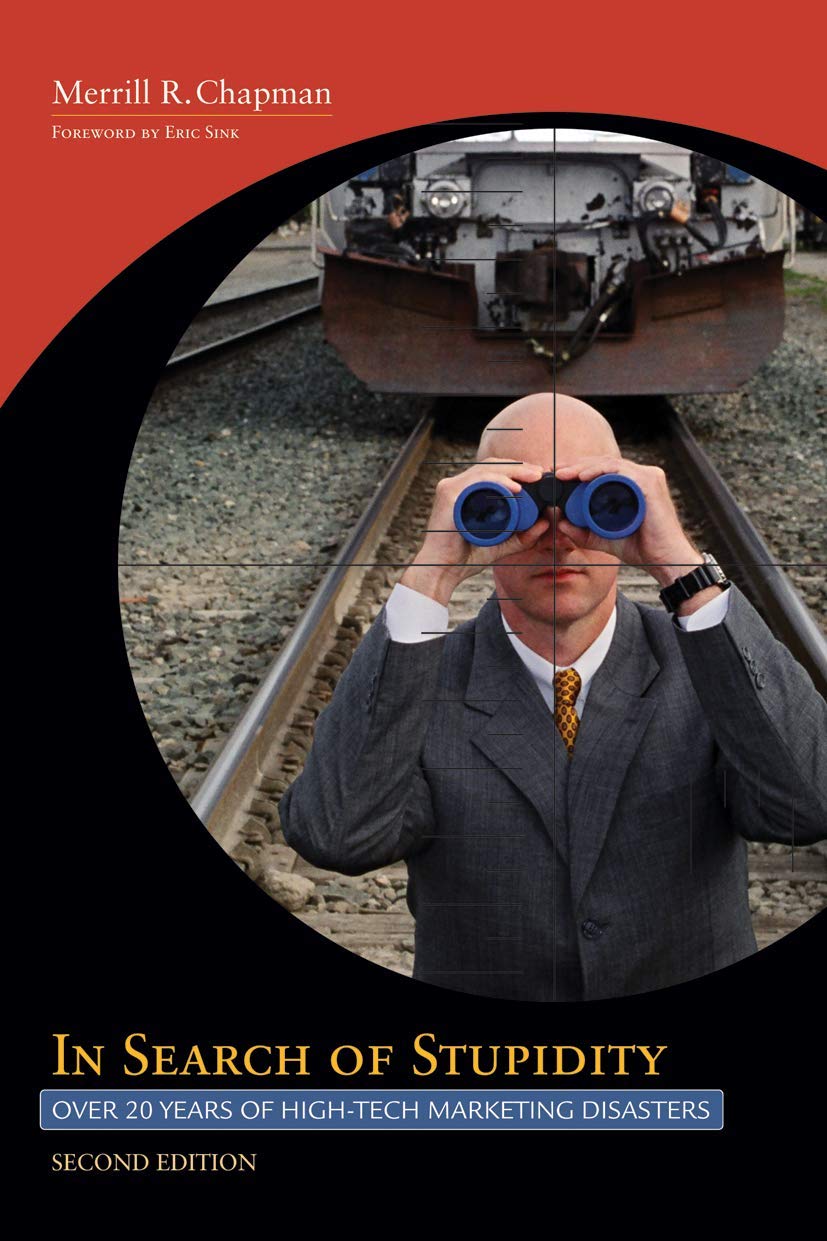Found in 3 comments on Hacker News
Gustomaximus · 2016-03-30
· Original
thread
In Search of Stupidity: Over Twenty Years of High Tech Marketing Disasters
http://www.amazon.com/In-Search-Stupidity-Marketing-Disaster...
davidw · 2014-03-07
· Original
thread
This reads a bit like something from
http://www.amazon.com/In-Search-Stupidity-Marketing-Disaster...
albeit with more focus on the features and less on what led Quark to screw up.


Chapman worked for sometime in sales and later product management at MicroPro (WordStar), Ashton-Tate, Novell, etc... so it has quite an "inside-look" feel and the subject matter sounds like it's treated fairly.
The narrative is quite the page-turner for a non-fiction book, but my only qualm with it is that Chapman can be pretty sophomoric and unnecessarily gratuitous in his lampooning and shaming of business leaders or strategies which flirts with undermining the otherwise really insightful analysis.
It's a little dated (Microsoft is still king and Apple the scrappy underdog), but I think it's an important context for anyone following tech today.
[0] https://www.amazon.com/Search-Stupidity-Twenty-Marketing-Dis...